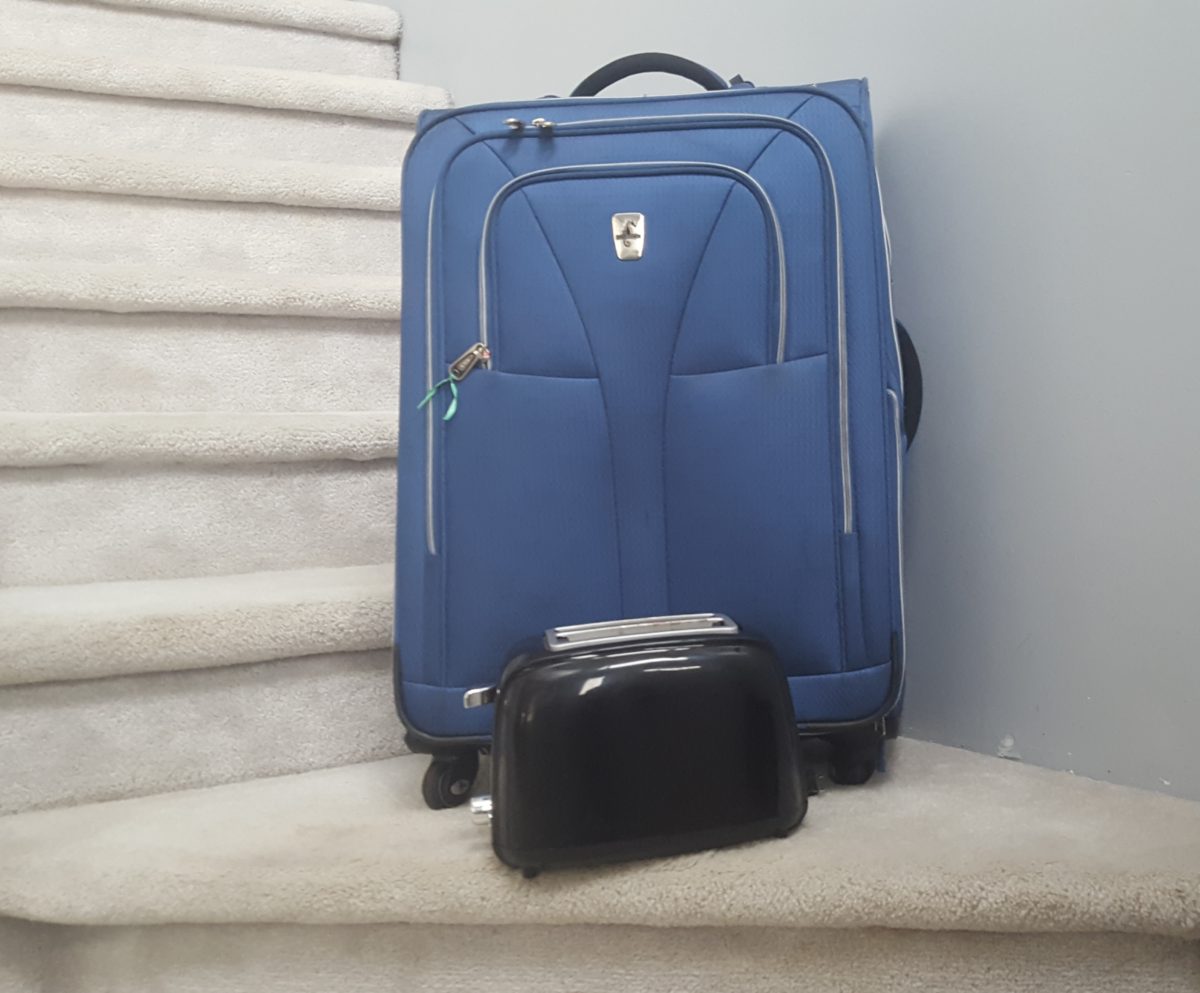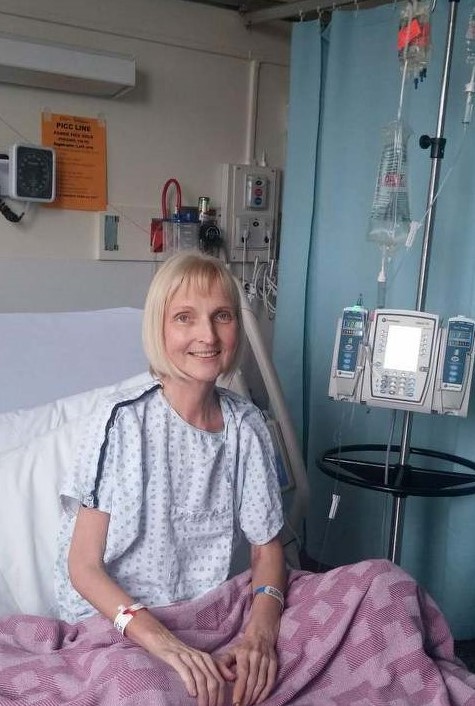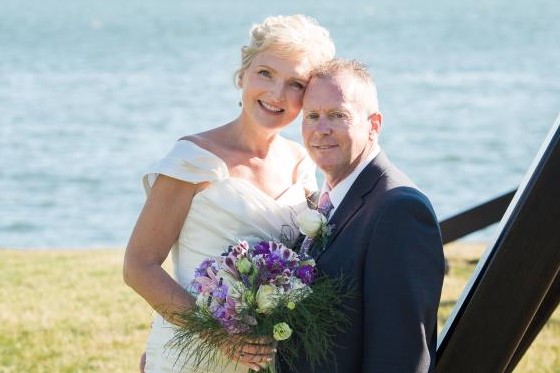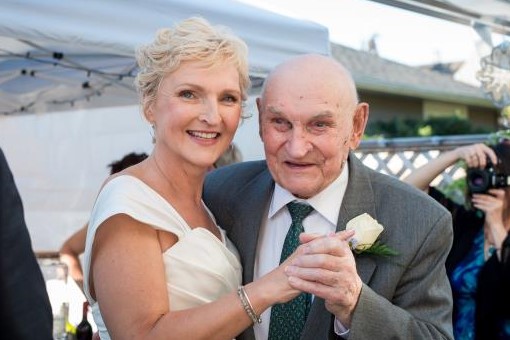It has been a bit of an adjustment since my new diagnosis. I have been gluten, dairy, and egg-free for the most part for a handful of years now. I always thought though that I was being overly cautious regarding the gluten issue since my blood tests came back negative for celiac disease during that time. It was not until the recent test results confirming celiac disease (and refractory at that!) that I realized I had to make a few more changes around food. While I was always careful, I am now meticulous with ensuring I’m not ingesting gluten and doing what I can to avoid cross-contamination at home in the kitchen and while dining out too.
One of those changes at home is having a separate ‘gluten-free products only’ toaster for myself. And that change at home follows us on our travels too. I have now added ‘toaster’ to my packing list (not that I even have a packing list-it’s in my head somewhere). Friends that travel with us very kindly and quickly learn to ‘step away from the toaster’ if they’re looking to toast their gluten-ful foods.
We have recently returned home from a trip to the Atlantic Provinces (with toaster in tow). It was spectacular standing at Cape Spear – the easternmost point in North America, getting ‘Screeched In’ and becoming an honorary New Foundlander at Christian’s Pub in St. John’s, hiking the Middle Head and Skyline Trails, in Cape Breton, and walking the red sand beaches of PEI. Oh, and the Celtic music at the Old Triangle Irish Pub in Charlottetown, PEI was moving. A small slice of the wonderful memories made and experiences had during this trip with friends.
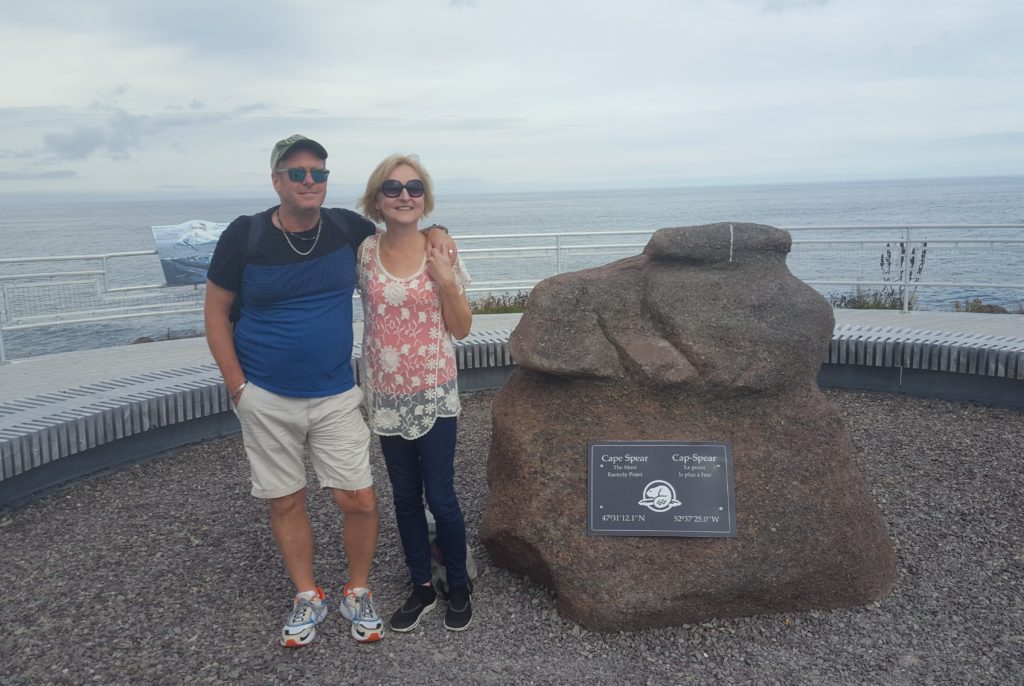

When we first began planning this trip, I was somewhat concerned that the eateries in smaller towns on the east coast would not provide gluten-free options. We were staying in AirBnbs throughout the trip, which was great. Having your own kitchen while travelling alleviates some of the food stress involved with eating away from home. In addition to the toaster, I diligently packed my gluten-free bread, snacks, and other favourites.
I’m pleased to say that for the most part, my worries were unwarranted with regards to dining out on the east coast. Yellow Belly Brewery in St. John’s offered gluten-free pizza crust and buns for their burgers along with non-dairy cheese. Coastal Restaurant in Ingonish, Nova Scotia had the most delicious gluten-free hamburger bun for their famous Ringer Burger in addition to having a gluten-free burger patty. They were so wonderful in changing up an appetizer for me too.
Pubs tend to not always have much selection for anyone with celiac as many things are battered and deep-fried so I was oh so pleasantly surprised at the Old Triangle Irish Pub in Charlottetown, PEI. There I was able to enjoy wings, fries, and even calamari since they had a separate fryer for all things gluten-free! Now I know that these aren’t the healthiest food choices, but I’m on vacation and was thrilled to be able to enjoy some pub grub!
There were definitely times though when finding appropriate items for me to eat while dining out proved to be challenging. It’s these moments when I felt like such a pain to everyone else. When I feel how much this disease affects all those close to me and I really hate that. I don’t like being a bother to others and I often feel that way in these situations. I know I shouldn’t, it’s not like I can help it, but I do.
We always have to check the menu before deciding to stay. No point in being somewhere I can’t eat. The choices aren’t always that great. Of course, most places will at least have salads of some sort but that’s not something that keeps me satiated and can often aggravate my insides. It’s occasions like these too that I experience food envy and can feel a bit sorry for myself. Everyone else gets to order and enjoy what they like or are craving whereas I must pick what won’t make me feel poopy – literally!
This on top of prednisone induced hunger, which doesn’t make ‘hangry’ but does leave me somewhat whiny (whinegry?) at times. Happy to say this doesn’t happen too often but, as I’ve mentioned before…
…I’m still adjusting…and apparently with my heels digging in every so often!
Don’t get me wrong, I am thankful that I am well enough to travel and really do have quite a diversity of foods that I am still able to eat. I’d be lying though if I said I don’t miss the freedoms of my previously healthy guts. We are all prone to taking our health for granted – those carefree days, you just don’t truly appreciate them til they’re gone.
The most difficult part of the trip, food-wise are the airports. You can’t always bring food with you and although it is becoming easier to find gluten, dairy and egg-free healthy snacks in the food establishments once you get through security, the offerings are quite limited and meals are hard to come by. One food oasis I found at an airport was Bistro Montreal-Trudeau where they offered roast chicken, grilled salmon, and veggies. I was also thankful to find a Freshii in St. John’s International Airport. I wasn’t even that hungry at the time (that’s rare!) but I ordered some food because I could! Besides, once you’re on the plane, gluten-free choices are minimal or as I have found a few times – sold out!
The culinary options are increasing and improving I’ve noticed over the last handful of years. Likely because more people are diagnosed with food allergies, sensitivities and other digestive disorders. I suspect the quantity and quality of food choices will continue to improve too making the dining out portion of travelling easier.
So despite an occasional food bump or biological emergency (which just goes with the territory of living with a chronic bowel disease), the trip was wonderful. My current health challenges are not enough to keep me from packing up my suitcase yet again and venturing off with Doug to explore another corner of this beautiful globe.
Along with the toaster of course!

